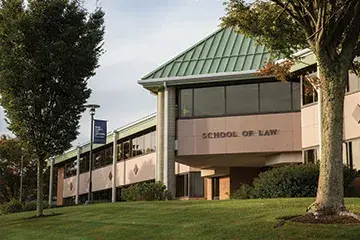Get in touch: +1 888 904 4161


Juris Education interviewed Jamie Gau, a Trial Advocacy Law Professor at Roger Williams University School of Law, for an exclusive look at what sets the school's Trial Advocacy Program apart. You can use these insights to strengthen your own law school application or get personalized guidance and application editing from our expert team.
Roger Williams University School of Law’s Trial Advocacy Program stands out because it doesn’t just teach advocacy—it lives it. Students learn the mechanics of litigation while also discovering how to connect those skills with the art of persuasion, all within a justice-focused, mission-driven environment that encourages practice, experimentation, and growth. The program is thoughtfully designed to develop not only the tactical and strategic expertise every advocate needs but also the empathy and persuasive techniques that bring their advocacy to life.
What truly sets the program apart is its immersive culture of mentorship. Students receive candid, constructive feedback and are given the space to take risks, learn from mistakes, and try again. We don’t just teach the rules of trial practice; we teach students how to embody them in the courtroom, with the belief that stronger advocacy among our students strengthens the promise of fair and impartial legal representation in our courts.
Students in the Trial Advocacy program develop qualities that go far beyond technical skills. One of the most important is professional vulnerability—the willingness to take risks, stumble in front of peers, and learn from mistakes. Whether it’s misphrasing an objection, losing your train of thought, or struggling through a cross-examination, students discover the power of saying, “I haven’t mastered this yet, but I am willing to try.” That vulnerability fosters resilience and allows the human side of advocacy to complement the technical side.
The program also builds adaptability by encouraging students to experiment, push past safe choices, and embrace critique as a path to growth. Through repeated practice and constructive feedback, students learn how to stay flexible and improve in real time, which are essential traits for any litigator.
Finally, the program cultivates a balance of confidence and humility. Students learn how to project confidence in the courtroom while also asking questions, seeking clarification, and refining their skills in front of others. Together, these qualities prepare them not only for trial work but also for the broader demands of a professional legal career.
Juris Education is proud to interview experts at the nation's most renowned law schools for insights on what makes their programs unique and how they shape career-ready law students.